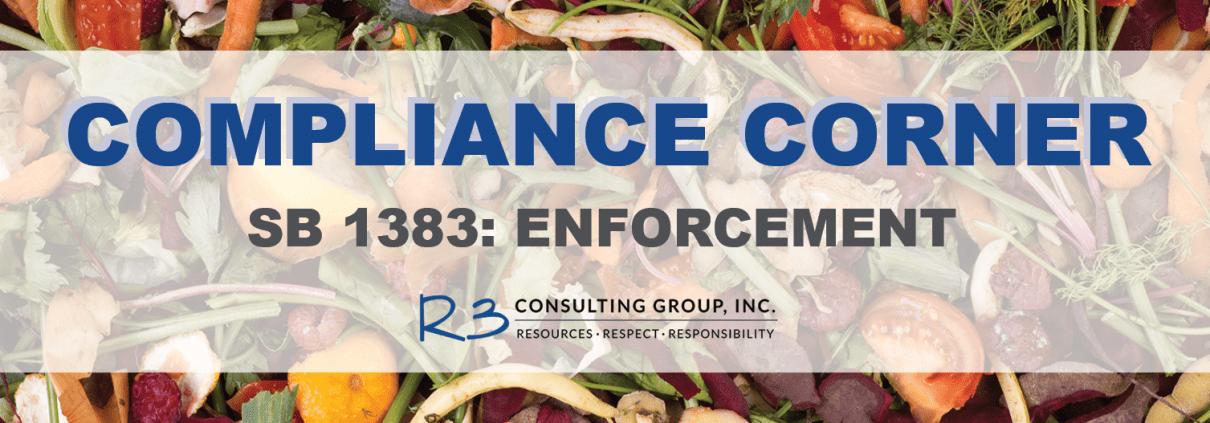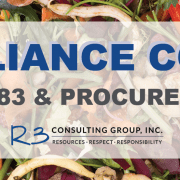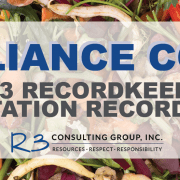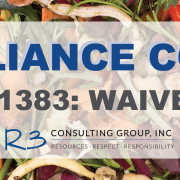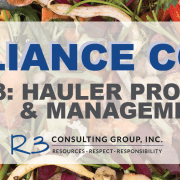Compliance Corner – November 2022
Enforcement
For November, we’re focusing on SB 1383 enforcement requirements. Although not the most popular topic, enforcement is imperative to accomplishing California’s climate and organic waste diversion goals by the year 2025!
A jurisdiction’s role in SB 1383 compliance monitoring, inspections and enforcement will include approving and issuing waivers to organic waste generators and accepting and investigating written complaints about non-compliance. Beginning in 2024, enforcement will include issuing a Notice of Violation and may progress to issuing administrative citation for repetitive offenses. Jurisdictions may designate provision of Notices of Violation to haulers, but the City must administer the associated penalties.
Managing the Enforcement of SB 1383 Requirements
- Develop a contamination monitoring and inspection protocol.
- Many collection haulers have developed contamination tags to be used as an educational tool for generators when contamination has been identified.
- Follow-up outreach and education and/or Notices of Violation in response to observed violations.
- Beginning in 2024, it will be beneficial to collect supporting documentation to assess administrative citations as necessary.
CalRecycle Enforcement
CalRecycle released an SB 1383 Compliance Process Guidance document to outline their escalating enforcement process for when jurisdictions are non-compliant. CalRecycle will conduct compliance reviews to identify violations. When CalRecycle identifies a compliance gap during a compliance review they may choose to address the issue informally or issue a Notice of Violation to the jurisdiction, which triggers the following enforcement process.

- Notice of Violation (NOV): If a jurisdiction is found to be violating one or more requirements, CalRecycle may issue the Notice of Violation with a timeline of between 90 and 180 days to correct the violation.
- Corrective Action Plan (CAP): When violations are caused by extenuating circumstances, such as natural disasters, delays in obtaining permits, or delayed recycling of organic waste, and the jurisdiction has made substantial efforts towards compliance; a Corrective Action Plan can be placed allowing up to 24 months to comply with an extension of 12 months.
- Substantial effort is where a Jurisdiction has done everything within its authority and ability to comply. Does not include circumstances where a decision-making body of a jurisdiction has not taken the necessary steps to comply with the chapter, including, but not limited to:
- Failure to provide adequate staff resources to meet its obligations, or
- Failure to provide sufficient funding to meet its obligations, or
- Failure to adopt the ordinance(s) or similarly enforceable mechanisms.
- Substantial effort is where a Jurisdiction has done everything within its authority and ability to comply. Does not include circumstances where a decision-making body of a jurisdiction has not taken the necessary steps to comply with the chapter, including, but not limited to:
Helpful Links

